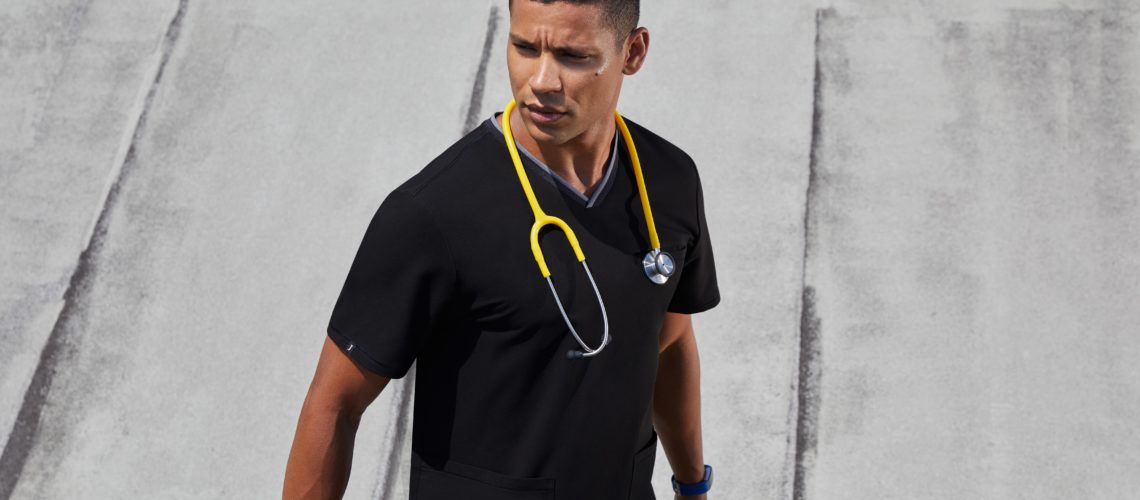Nursing careers are challenging but rewarding, and radiology nursing requires specialized skills and certification.
For those of you with questions like, “What does a radiology nurse do?” and “What are a radiology nurse’s responsibilities?” you’ve come to the right place. For those of you who are ready to hit the books and just want to know how to get your radiology nurse certification (and maybe what kind of income you’ll earn), we’ve got you covered.
Read on to learn what sets this career path apart and whether it’s right for you.
What is a radiology nurse?

Let’s start with a more straightforward question: What is radiology? Radiology is the science of X-rays and other radiation. In this context, we’re talking about imaging that helps diagnose and treat illnesses.
More specifically, radiology nurses work with patients in the radiology department (be it in a hospital or a private clinic) alongside a team of radiologists and other staff.
What are the roles and duties of a radiology nurse?
This type of nurse works in the radiology department, but what are their duties? Here are some of the key tasks you’d be responsible for as a radiology nurse:
- Provide patients and their families with information on procedures and post-procedure
- Monitor vital signs
- Take note of health conditions and allergies
- Administer medication, sedatives and IVs
- Prepare patients for procedures
- Assist with recovery and discharge
- Explain procedures to patients
- Monitor rare reactions to procedures
- Assist with pain management and patient comfort
- Operate and monitor equipment
- Maintain records
- Communicate with a team of nurses, doctors and radiologists
- Be prepared to handle emergencies
How to become a radiology nurse?

To become a radiology nurse, you need a college-level degree like an Associate Degree in Nursing (ADN) or a Bachelor of Science in Nursing (BSN) before being certified. We recommend a BSN as it’s a better foundation for advanced careers. Flexibility is everything in nursing.
Later, you can decide whether getting an advanced degree like a Master of Science in Nursing (MSN) degree or a Doctor of Nursing Practice (DNP) degree is right for you. With these degrees, you’ll have access to more specialization opportunities and higher salaries.
Radiology nurses are certified registered nurses, which means you’ll have to pass the NCLEX-RN exam. Then, you can get certified as a Certified Radiology Nurse (CRN) by the Radiological Nursing Certification Board.
Of course, you’ll be putting in a good deal of clinical hours as well, at least 2,000 in three years—30 of these hours must be “contact hours,” and half of those hours must be in the specialty of radiology. (Sounds like you’ll need some compression gear for all those hours on your feet, right?) Contact hours must be done with an entity recognized by the American Nurses Credentialing Center Commission on Accreditation (ANCC).
Last but not least, you’ll have to sit for the Certification Examination for Radiologic Nursing in Imaging given by the Association for Radiologic and Imaging Nurses (ARIN).
And, to make sure you keep all your knowledge fresh, you’ll have to get recertified as a CRN every four years.
Where do radiology nurses work?
Naturally, radiology nurses work wherever imagining is done, which includes the following locations:
- Hospitals
- Private practices
- Diagnostic imaging facilities
- Outpatient facilities
Radiology nurses are part of an all-star team that includes doctors, specialists, technicians, and other nurses. So no matter where you work, you can count on being part of an ecosystem.

What should you know before becoming a radiology nurse?
We know you have what it takes to become a radiology nurse, but is this career path suitable for you? Check out the skills below to see if this career aligns with your personality and ways of working:
- Communication: You’ll be part of a team and in direct contact with patients and their families, so being able to communicate information about conditions and procedures is essential.
- Teamwork: This skill goes hand in hand with communication because you’ll have to constantly share information with a group of other healthcare professionals.
- Preparation: Radiology nursing is specialized work, so you’ll need to come to the job well prepared. That means getting an excellent education, passing your certification exam and doing hands-on work with patients.
- The ability to multitask: We’ve all heard that multitasking may not be the most efficient way to work, but there’s no way around it as a nurse. You’ll be doing imaging and other work for several patients, both in and out of the lab, and you’ll need to keep all this information straight.
- Empathy: As in all healthcare roles, demonstrating patience and compassion for patients and their support systems is what will make you stand out.
What is the career outlook for a radiology nurse?
We all want to do what we love, and it’s a major plus when we can earn an excellent salary along the way.
Currently, the average annual nurse radiologist salary in the United States is around $70,000, and the number of radiology nurse jobs (as with most nursing careers) is on the rise. Healthcare professions are generally a good bet for job security because patients will always need someone to take care of them.
We know the work you do, no matter how rewarding, isn’t always easy, so let us take the work out of helping you find comfortable great-looking scrubs.
No matter what type of healthcare professional you decide to become, we’re in your corner, always!

